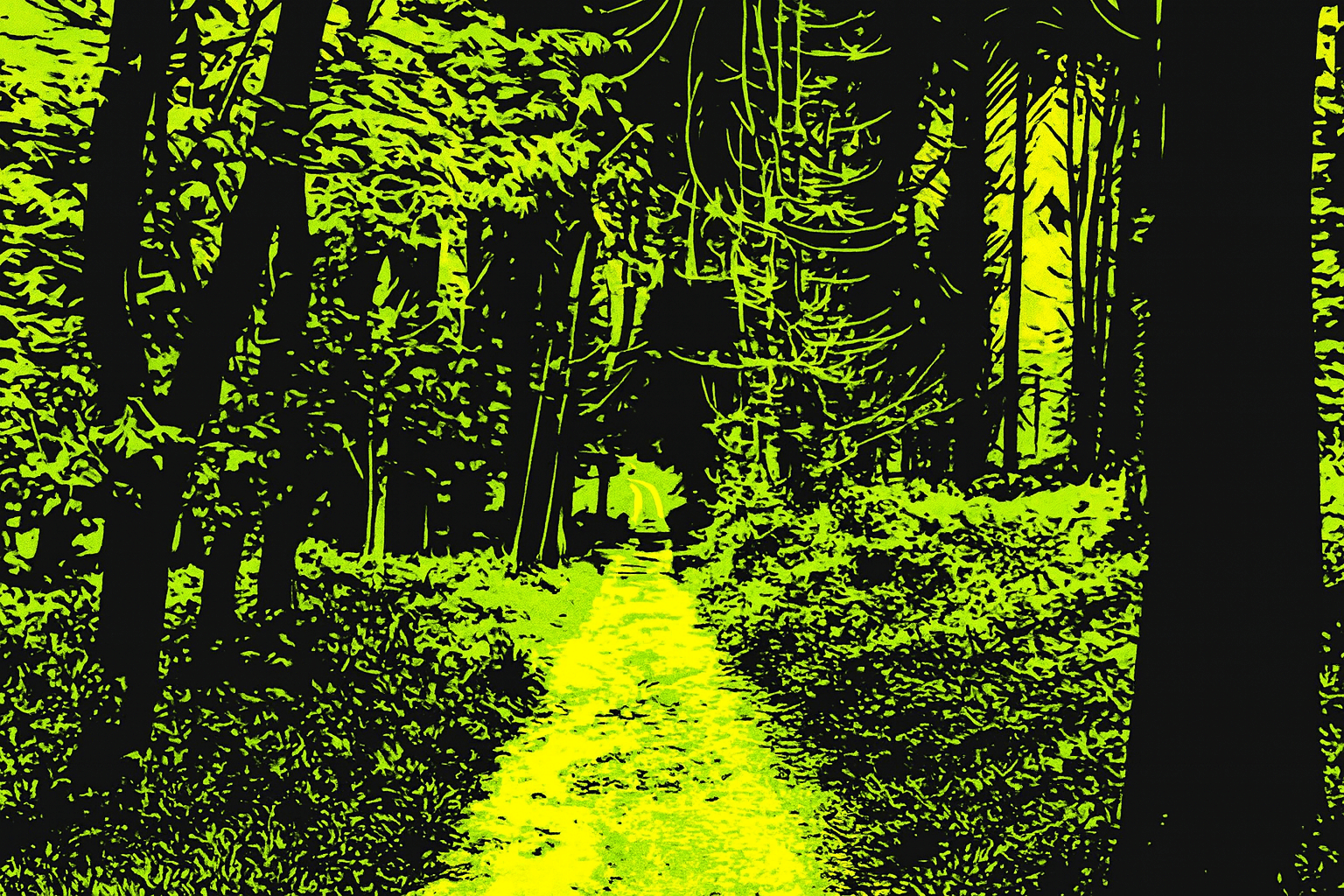Your digital trail is a data goldmine every click, search, and login becomes part of a permanent profile. This starter guide shows you how to reclaim control: harden your browser, compartmentalize your identities, encrypt local data, and block network tracking. Stop cleaning the old trail and start rebuilding a smaller, quieter one that works for you, not for them.
Forget about trying to hide. The goal is to refuse being predictable and keeping your digital trail obscure.
You’ve been online for years. Signed up for things you don’t remember. Let apps auto fill your location. Left profiles half finished and it didn’t seem like a big deal, until it was.
Now you’re being tracked by scripts you’ve never seen. Profiled by data you didn’t know you gave. Judged by a trail that no longer represents who you are.
That’s not privacy loss. That’s just socially acceptable identity theft.
If you’re done feeding the machine, this isn’t about panic. It’s about starting clean. This is your mindset shift. Your reset. Your first real move toward digital autonomy.
Why Your Digital Trail Matters
Every online action leaves a trace: metadata, log entries, browser fingerprint, tracking cookie. Most of it gets vacuumed up without your permission. The rest you handed over yourself.
Your trail isn’t just a record. It’s a fully monetized asset traded, analyzed, and used to predict your next move. The longer you’ve been online, the more detailed and accurate it becomes.
Old usernames. Forgotten photos. Search history from a decade ago. It’s a profile and it’s for sale.
The Fresh Install Mindset
Before you do anything else, understand this: You don’t need to erase every trace to reclaim privacy. That’s impossible.
What you need is a fresh install mindset. The same way you would wipe and rebuild a bloated, slow machine. You don’t tweak. You start clean. You change habits, rebuild systems, and control what you let back in.
The same rules apply to your identity.
Key principles:
- Don’t reuse data: Every new identity = new alias, email, compartment.
- Don’t centralize accounts: Use multiple browsers, containers, or profiles.
- Don’t trust defaults: They’re built to profile you. Change them all.
How the Digital Trail Gets Built (Without You Knowing)
Think it’s just social media? That’s cute.
Here’s how your trail stacks up:
- Browsers: Store search history, autofill, login cookies, and fingerprinting data
- Apps: Request location, access contacts, monitor app usage in background
- Accounts: Track purchases, devices, and login locations
- Search engines: Record every query, click, scroll, and time on page
- Email: Metadata from every sender, location tags, third party pixels
- Smart devices: Voice recognition, activity logs, behavioral modeling
You’re being categorized. The only way out is to build systems that don’t leak by default.
The Minimum Effective Lockdown
This is not the checklist. You’ve already got that. This is the bare minimum strategy to stop bleeding data.
1. Start with the browser
- Use Firefox with hardened settings, containers, and uBlock Origin
- Stop using Chrome. It’s not just bad, it’s hostile
- Consider running multiple profiles for different purposes (public, private, anon)
2. Segment your identities
- One email per context (personal, financial, burner, rebuild)
- Masked email tools: SimpleLogin, AnonAddy
- Don’t reuse usernames across platforms
3. Control your network
- Use Mullvad or Proton VPN with custom DNS
- Block outbound tracking with RethinkDNS (Android) or NextDNS (system wide)
- Harden your router if possible. Don’t trust the ISP’s firmware
4. Use encrypted tools
- Local: Picocrypt, VeraCrypt, KeePassXC
- Cloudless: Syncthing, Standard Notes, Obsidian + Cryptomator
- Messaging: Signal, with disappearing messages, PIN, and no backups
Each one of these is a module. Lock them down one at a time. It’s a rebuild.
Don’t Clean. Rebuild.
You can spend your life trying to erase the old trail. Or you can start building the new one that is smarter, smaller, and quieter.
Your digital trail will never be empty, but it can be useless to them.
- Use aliases
- Encrypt your local files
- Segment your accounts
- Control your browser and network
From this point forward, everything is intentional.
Don’t stop here. For a complete system that covers passwords, phones, data, and network lockdown, read the: The Complete Guide to Locking Down Your Digital Life
Takeaway: Refuse the Default
The system wants you tired. It wants you tracked. It wants you to believe privacy is only for criminals or paranoids.
But privacy isn’t a luxury. It’s a boundary. A way to live unobserved, unmanipulated, and unmonetized. You’re reclaiming space. You’re opting out, not from the internet, but from being used by it.
Start over. Lock it down. And keep it that way.
-GHOST
Written by GHOST, creator of the Untraceable Digital Dissident project.
This is part of the Untraceable Digital Dissident series — tactical privacy for creators and rebels.
Explore more privacy tactics at untraceabledigitaldissident.com.
